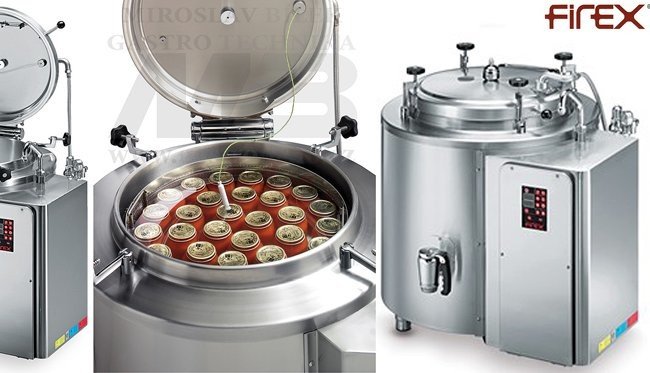Retort Processing in Beverage Production
What is Retort Processing?
Retort processing is a thermal preservation method used to extend the shelf life of food and beverages by subjecting them to high temperatures under pressure. The process involves sealing the product in airtight containers, such as cans or pouches, and then heating them to sterilize the contents. This kills harmful bacteria, enzymes, and microorganisms that could otherwise cause spoilage, ensuring the safety and quality of the product over an extended period.
How is Retort Processing Applied in Beverage Production?
In beverage production, retort processing is particularly prevalent for products that require long-term storage without refrigeration, such as canned juices, ready-to-drink teas, coffee, and lattes, and energy drinks. The process typically involves the following steps:
Preparation: The beverage is prepared according to the desired recipe, including the addition of any flavors, sweeteners, or preservatives.
Filling: The prepared beverage is then filled into containers, which are specially designed to withstand the rigors of retort processing, ensuring they remain hermetically sealed throughout the process.
Sealing: The containers are sealed to create an airtight environment, preventing any contaminants from entering during processing or storage.
Retort Processing: The sealed containers are loaded into retort chambers, where they undergo thermal processing. The temperature and pressure levels are carefully controlled to ensure effective sterilization while minimizing any negative impact on product quality.
Cooling: After the thermal processing is complete, the containers are cooled rapidly to prevent overcooking or thermal damage to the product.
Labeling and Packaging: Once cooled, the containers are labeled, packaged, and prepared for distribution.
Benefits of Retort Processing for Beverage Brands
Retort processing offers several benefits for beverage brands, including:
Extended Shelf Life: Retort-processed beverages can be stored at ambient temperatures for an extended period, reducing the need for refrigeration and enabling wider distribution.
Preservation of Nutritional Quality: Unlike traditional heat pasteurization methods, which can cause significant nutrient loss, retort processing allows for better retention of the beverage's nutritional content.
Enhanced Safety: By eliminating harmful bacteria and microorganisms, retort processing helps ensure the safety of the product, reducing the risk of foodborne illnesses and product recalls.
Versatility: Retort processing can be applied to a wide range of beverage types, including acidic and low-acid products, making it a versatile option for beverage manufacturers.
Considerations for Beverage Brands
While retort processing offers numerous advantages, beverage brands should also be mindful of the following considerations:
Texture and Flavor Changes: Retort processing involves subjecting beverages to high temperatures for extended periods, which can lead to changes in texture, flavor, and color. Over-processing or improper temperature control may result in undesirable alterations to the sensory characteristics of the product, impacting its taste and overall appeal.
In order to understand what your beverage will taste like after retort, you will need to implement a series of tests. Usually, you would need to send samples off to a facility (taking time and $$), often taking months to receive a sample of your product. Fortunately, we have a benchtop autoclave, allowing us to test your product right after formulation (saving you time and $$!).
Nutrient Loss: Despite efforts to minimize nutrient loss, retort processing can still lead to some degradation of vitamins, minerals, and other sensitive nutrients in beverages. Certain vitamins, such as vitamin C, are particularly susceptible to degradation at high temperatures, potentially affecting the nutritional profile of the product.
Regulatory Compliance: Beverage brands must comply with regulatory requirements governing retort processing, including those related to container materials, thermal processing parameters, and labeling. Not all materials are suitable for use in retort processing, and selecting the wrong packaging can lead to issues such as leaching of harmful chemicals into the beverage or inadequate sealing, resulting in spoilage or contamination.
Consumer Perception: Some consumers may perceive retort-processed beverages as less "fresh" or "natural" compared to refrigerated products. Communicating the benefits of retort processing, such as extended shelf life and safety, can help alleviate concerns and build consumer trust.


